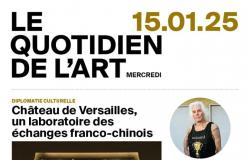Published on January 14, 2025 at 5:15 p.m. / Modified on January 14, 2025 at 5:16 p.m.
2 mins. reading
When we think fake news in 2025, we imagine a video instead deepfake of a president’s truncated speech, but less automatically false information that concerns companies. Little research has been devoted to this. A study recently published in the journal Business & Societyentitled “Fooling them, not me? How fake news affects evaluators’ reputation judgments and behavioral intentions,” looked into the phenomenon.
“Companies are also increasingly being targeted with ever more sophisticated methods,” underlines Patrick Haack, director of the HEC Research Center for Grand Challenges at the University of Lausane. He is one of the co-authors of the study, with Simone Mariconda (consultant), Marta Pizzetti (Emlyon Business School), Michael Etter (King’s College London).
Want to read all of our articles?
For CHF 29.- per month, enjoy unlimited access to our articles, without obligation!
I subscribe
Good reasons to subscribe to Le Temps:
- Unlimited access to all content available on the website.
- Unlimited access to all content available on the mobile application
- Sharing plan of 5 articles per month
- Consultation of the digital version of the newspaper from 10 p.m. the day before
- Access to supplements and T, the Temps magazine, in e-paper format
- Access to a set of exclusive benefits reserved for subscribers
Already have an account?
Log in
Swiss






